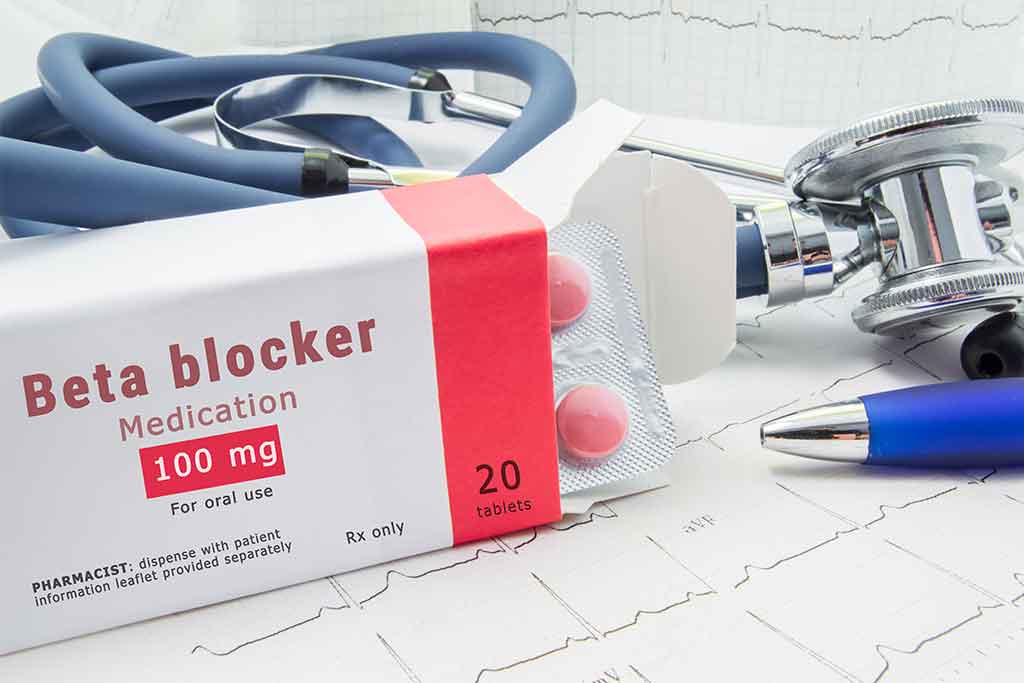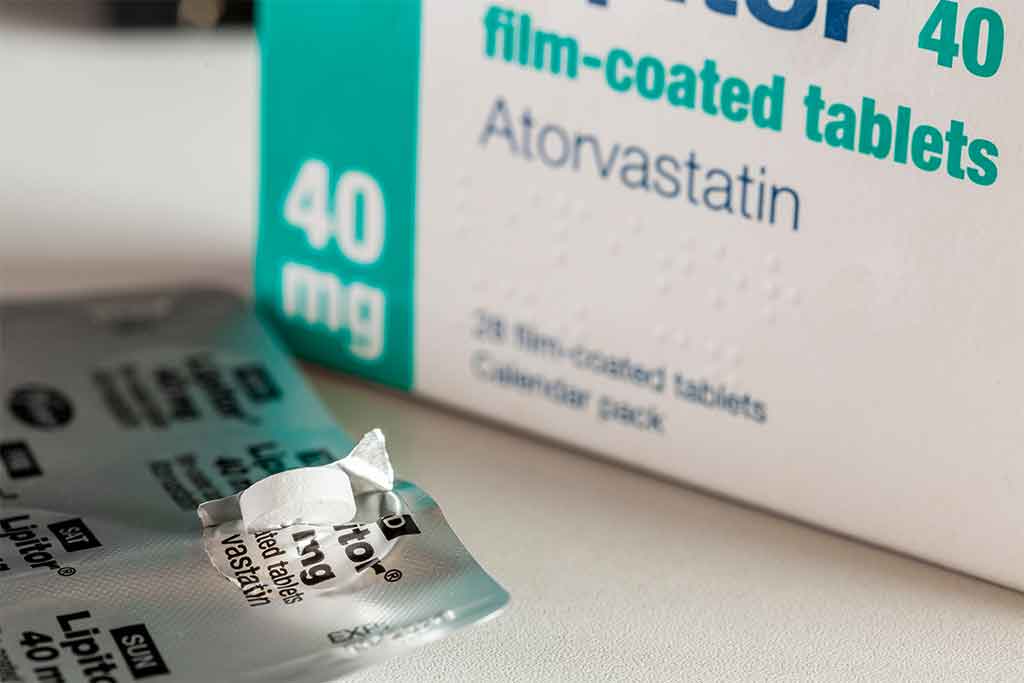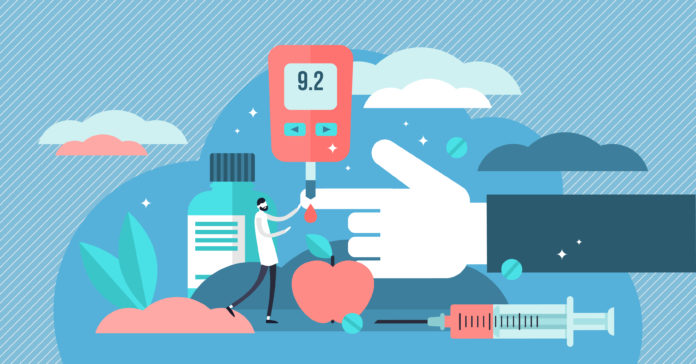Given that diabetes is the leading cause of peripheral nerve damage, it’s smart to do everything possible to make sure you’re keeping your blood sugar levels in a healthy range. Many commonly prescribed medications can interact with the body in ways that increase the risk for the development of diabetes.
Many of us rely on medications to help us manage any number of different ailments, conditions, or illnesses. While plenty of these meds are good for us, and help us to live normal lives, some of them are taking tolls on our body that the medical community is still working to fully understand.
Side effects, as you’re likely well aware, are a pretty common part of the pharmaceutical experience. We’ve all seen those commercials, where an almost comically-long laundry list plays in rapid-fire, almost seeming like an afterthought allowed to be expressed once the supposed benefits that come from medication have been properly discussed.
Perhaps we’ve been trained to simply ignore some of these side effects. Maybe some of us have no problem looking the other way, given that the medications responsible for them are actually helping us out in the ways they’ve been designed to.
But what about the long-term?
Some medications can take a relatively serious toll on the human body, especially when they’re taken for extended periods. Certain alterations in the body’s chemistry, if they’re allowed to progress, sometimes are even worse than the benefits of the medication in the first place. They can alter the body’s internal composition in damaging ways.
The medical community has been uncovering valuable information about which medications can potentially alter blood sugar levels…specifically in ways that can elevate the predisposition for diabetes or prediabetes. And you need to know about them so you can make wise choices, especially if you are already particularly susceptible to nerve damage.
An Important Note of Caution
We must establish right off the bat that this article is simply meant to inform. Do not stop taking any essential prescribed medications without consulting with your doctor first.
Stopping certain medications can have potentially disastrous, even life-threatening consequences. It’s of the utmost importance that you avoid stopping any medication without having a thorough conversation with your doctor before doing so. Don’t hesitate to be curious, or persistent—it’s important to advocate for yourself. Ask your doctor if there might be alternative lifestyle choices, or other non-pharmaceutical solutions that can help you accomplish the same results as conventional medications.
How Blood Sugar Levels and Your Nervous System Relate with Each Other
According to The Foundation for Peripheral Neuropathy, diabetes is the number one cause of peripheral nerve damage, with over 60 percent of diabetic individuals also dealing with at least some form of neuropathy. As such, it’s probably no surprise to find out that making sure your blood sugar levels are in check can be one of the most effective methods for curbing the pain and frustration that can come along with nerve damage.
So why are diabetes and nerve damage so closely related? The answers lie in your blood.
Blood Helps Your Nerves Stay Fed and Repaired
The relationship between your blood (and more specifically, your blood’s chemical composition) is a pretty close one. Your blood is the primary delivery system for a lot of the things that your nervous system needs in order to stay healthy and functional.
As you use your nervous system day in and day out, its use creates waste products that your blood helps to carry away. Your blood also carries a wide variety of nutrients, growth factors, and other reparative compounds to your nerves, to keep them healthy (not unlike water that must regularly nourish the roots of just about any plant).
Problems like diabetes, which alter the levels of blood sugar in your blood, can essentially make your blood chemically toxic to your delicate nerve endings. When the blood that’s in charge of nourishing and repairing your nerves gets changed on a fundamental level, the results can be damaging.
Drugs That Alter Blood Sugar Levels
Certain medications can cause your blood sugar levels to rise — not only is this bad for your nerves in the long-term, but it can also increase the predisposition to problems like prediabetes, and type 2 diabetes.
These issues are characterized by your body’s failure to either produce or effectively use a hormone known as insulin. Your body makes insulin to help your cells process something called glucose — also known as your blood sugar. Insulin helps your body to convert glucose into energy that is then used by your cells. If your body doesn’t make enough insulin or isn’t able to use insulin properly (this is known as insulin resistance), your blood sugar levels rise uncontrollably, and the consequences can be very dangerous.
1. Corticosteroids

These medications are typically used to calm an overreactive immune system, which can be another cause of nerve damage in and of itself. While they’re doing this work, however, they’ve also been found to cause “unanticipated hyperglycemia,” according to a 2013 study published in Diabetes Metabolism Research and Reviews.
These medications have been found to interfere with what’s known as the “insulin cascade,” which is just a fancy way of describing the series of signals and messages that your body sends out, in order to make sure insulin is doing its job properly.
A 2015 study published in the World Journal of Diabetes also found elevated blood sugar levels to be “one of the most common and representative” side effects that can come along with corticosteroids, due to their ability to diminish your body’s production of insulin.
2. Thiazide Diuretics
These medications are typically used to treat hypertension, which is the medical term for high blood pressure. They help your body to stay flushed out, which can be useful for removing excess water from the body. By encouraging your kidneys and liver to be constantly flushing and filtering out your body’s fluids, they can effectively curb the types of high blood pressure that can eventually lead to heart problems and other cardiovascular issues.
They tend to have unintended side effects, though.
According to the American Diabetes Association, “several studies [have shown] that the use of thiazide diuretics increases glucose levels.” This is believed to be due to a condition known as hypokalemia, which refers to unacceptably low levels of potassium and magnesium in the body.
When you’re constantly flushing your system with diuretic pills, your body is inadvertently ridding itself a lot of the potassium and magnesium that play an important role in helping insulin do its work. The result can be dangerously-elevated blood sugar levels, which may eventually lead to the development of diabetic conditions, including peripheral neuropathy.
3. Beta Blockers

Another set of pharmaceuticals that are commonly used to lower blood pressure and prevent its associated cardiovascular problems, beta blockers work in a very interesting way. They essentially dampen the effects of hormones like adrenaline and noradrenaline. These are the chemicals in your body that trigger your fight-or-flight response, and in so doing, elevate your blood pressure to make sure more blood is flowing through your body (essentially getting you ready to fight or run for your life).
The problem with beta-blockers, though, is that many of them aren’t selective enough, in terms of the cells with which they interfere. As suggested by their name, beta-blockers interfere with a set of cells in the body known as beta cells. These cells do many different things — some of them are involved with insulin release, while others are involved with adrenaline.
Since both of these hormones are produced by beta cells, beta-blockers that are meant to mitigate your adrenaline levels might also be impacting your insulin levels at the very same time.
As a result, while some beta blockers can be very effective at preventing certain types of blood-pressure-related heart issues, they can also present an inadvertent danger for diabetes development by interfering with your body’s production and use of insulin.
5. Statin Medications

Did you know that statin medications are the most-prescribed pharmaceutical in the United States? As problems like obesity and metabolic syndrome continue to be more and more persistent in the United States, statin medications become more and more commonly prescribed, in the hopes that they’ll combat some of the ancillary problems that can so dangerously present themselves.
High cholesterol can be a huge health problem, but its overwhelming ubiquity has led to a dangerous reliance on statin medications. The more we learn about statin medications, the more we learn that they can potentially have dangerous implications not just on our nervous systems, but on our blood sugar levels as well.
Many of your nerve fibers are coated with something known as the myelin sheath. Think of it as being similar to the rubber coating you’d find on any standard electrical wire. The myelin sheath wraps around your nerves, keeping them protected and helping to encourage their conductivity.
The myelin sheath is made of fats and proteins…and a certain type of cholesterol in your body is instrumental in its production and maintenance. Medications targeting the reduction of fats inadvertently negatively impact the protective covering of your peripheral nerves.
Further complicating the issue, institutions like the Mayo Clinic have found that statin drugs can increase blood glucose levels in a way that presents a pretty serious risk for type 2 diabetes.
Another research team, as reported in Medical News Today, found that statin medications “[activate] a very specific immune response, which [stops] insulin from doing its job properly.” Researchers also found in October 2016 that statins can inhibit glucose transporters, which essentially make it harder for your body to metabolize these sugars, allowing them to build up in your blood. They also found that lowered levels of cholesterol can indirectly mess with insulin production, but more research on this point is needed to fully understand why.
Check with Your Doctor to Understand Risks (and Possible Alternatives)

Here’s the thing about your blood sugar — it has a very direct relationship with the foods that you put in your body. Diet and lifestyle choices are one of the biggest ways to impact your glucose levels, in both the long and short terms.
Many of the medications that can contribute to elevated blood sugar levels accomplish things that can be at least helped along with the right dietary choices and lifestyle changes.
All this being said? Sometimes pharmaceuticals are still necessary. Ask your doctor about what risks your medications might present, and see if there are ways to mitigate those risks.
8 of the Best Neuropathy-Friendly Exercises

Did you know that exercise is one of the best defenses against nerve damage and to promote healing? It’s…
Sleep Disruption Not Only Makes You Tired, It Does This Too

When we’re in pain, we have a hard time sleeping. That’s bad enough. But it turns out that sleep…
6 Mind-Body Therapies You Need to Try

You know how the saying goes -- don't knock it before you try it. Mind-body therapies for pain treatment…
4 Clean CBD Brands You Can Trust

CBD has grown in popularity over recent years, especially for anxiety, pain, and sleep disorders. But with little regulation,…
8 Best Supplements for Neuropathy

We know that nutritional supplements -- in addition to a healthy diet -- can help to prevent nerve damage,…
What Does My Peripheral Neuropathy Diagnosis Mean?

It’s a mouthful. Confused by what it even means? If you have a peripheral neuropathy diagnosis, you may want…
Best Value Red Light Therapy Panel Goes to Mito

As the popularity of red light therapy has grown quickly over the past few years, it comes as no…
Joy Organics: The Clean Family-Owned CBD Brand

Joy Organics was started in a small Colorado town by Joy Smith in 2018. She had suffered from chronic…











